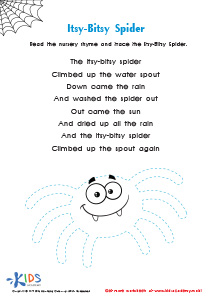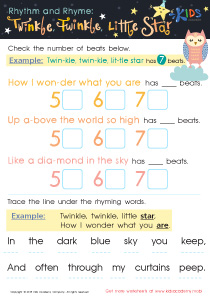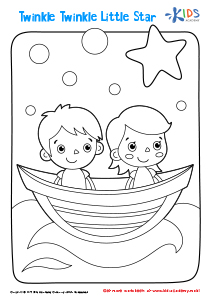Nursery Rhymes Worksheets for Ages 4-7
5 filtered results
-
From - To
Explore our engaging collection of Nursery Rhymes Worksheets designed for children aged 4-7. These fun, educational activities help kids develop essential reading, writing, and comprehension skills through the timeless charm of classic nursery rhymes. Each worksheet is crafted to ignite creativity, improve vocabulary, and build a strong foundation for early literacy. With a variety of exercises including coloring, matching, and fill-in-the-blanks, our worksheets make learning both enjoyable and interactive. Visit Kids Academy for free, printable resources that turn learning into a joyous adventure for your little ones. Start their educational journey with us today!
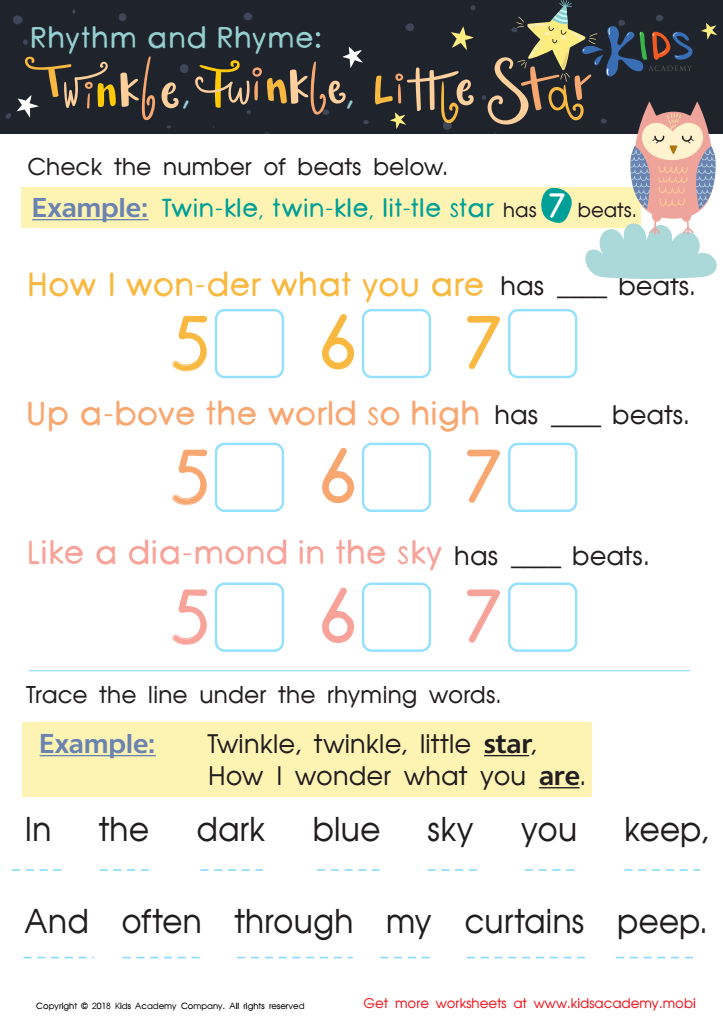

Rhythm and Rhyme: Twinkle, Twinkle, Little Star Worksheet
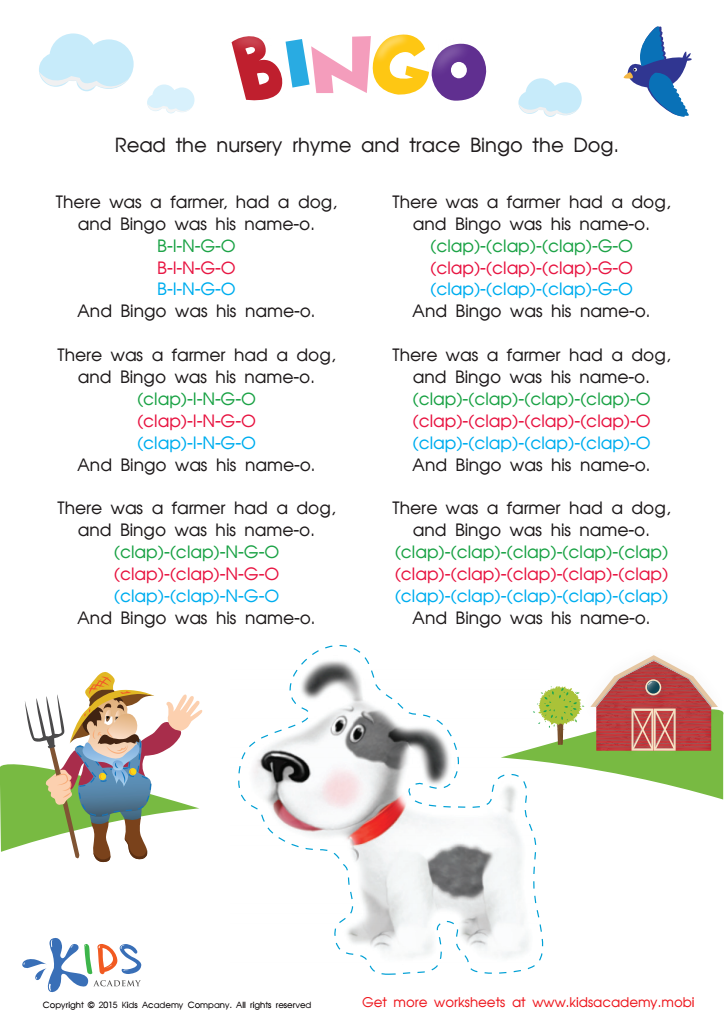

Nursery Rhymes: The Bingo Song Worksheet


The Five Little Monkeys Nursery Rhyme Worksheet
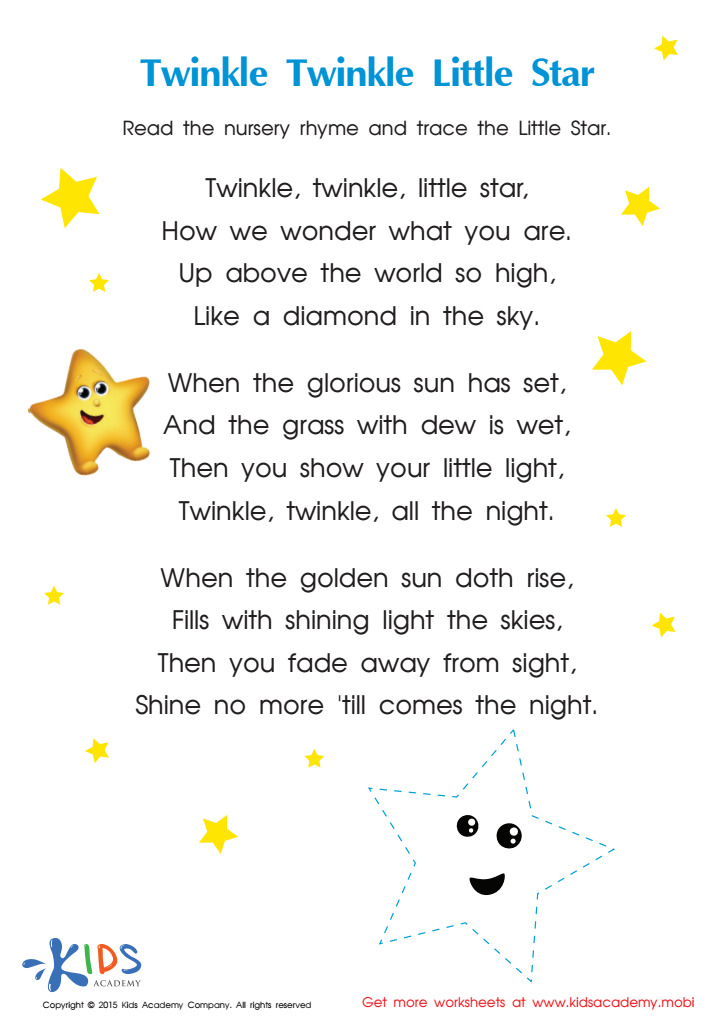

Nursery Rhymes: Twinkle Little Star Worksheet
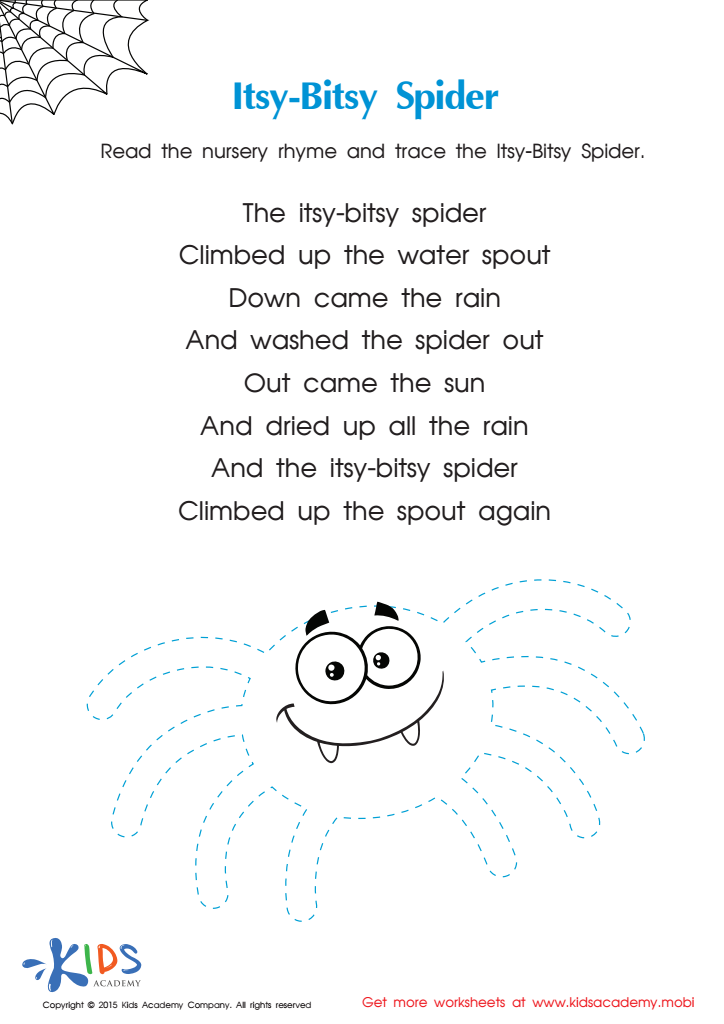

Itsy Bitsy Spider Nursery Rhyme PDF Worksheet
Nursery rhymes are an integral part of early childhood development for children aged 4-7. These short, rhythmic, and often whimsical verses captivate young minds and lay a critical foundation for future learning. Firstly, nursery rhymes significantly enhance language skills. The repetition and rhyme schemes help children develop phonemic awareness, an essential precursor to reading. They become attuned to the sounds within words, aiding in vocabulary expansion and speech development.
Additionally, nursery rhymes bolster memory and recall. As kids frequently sing or recite these verses, they exercise their memory muscles in a fun and engaging manner. This practice naturally extends to other educational domains, leading to improved cognitive function overall. Moreover, they offer an excellent medium for teaching concepts such as numbers (“One, Two, Buckle My Shoe”), letters, and basic life lessons.
Socially, reciting nursery rhymes fosters interaction. Kids often sing together, promoting teamwork, cooperation, and shared joy, thus enhancing their social bonds. Emotionally, these familiar verses provide comfort and security, creating a sense of nostalgia and belonging.
Lastly, the rich imagery and scenarios in nursery rhymes ignite creative thinking, encouraging children to use their imagination. For these multifaceted developmental benefits, parents and teachers should wholeheartedly embrace nursery rhymes as vital tools in early education.

 Assign to the classroom
Assign to the classroom






